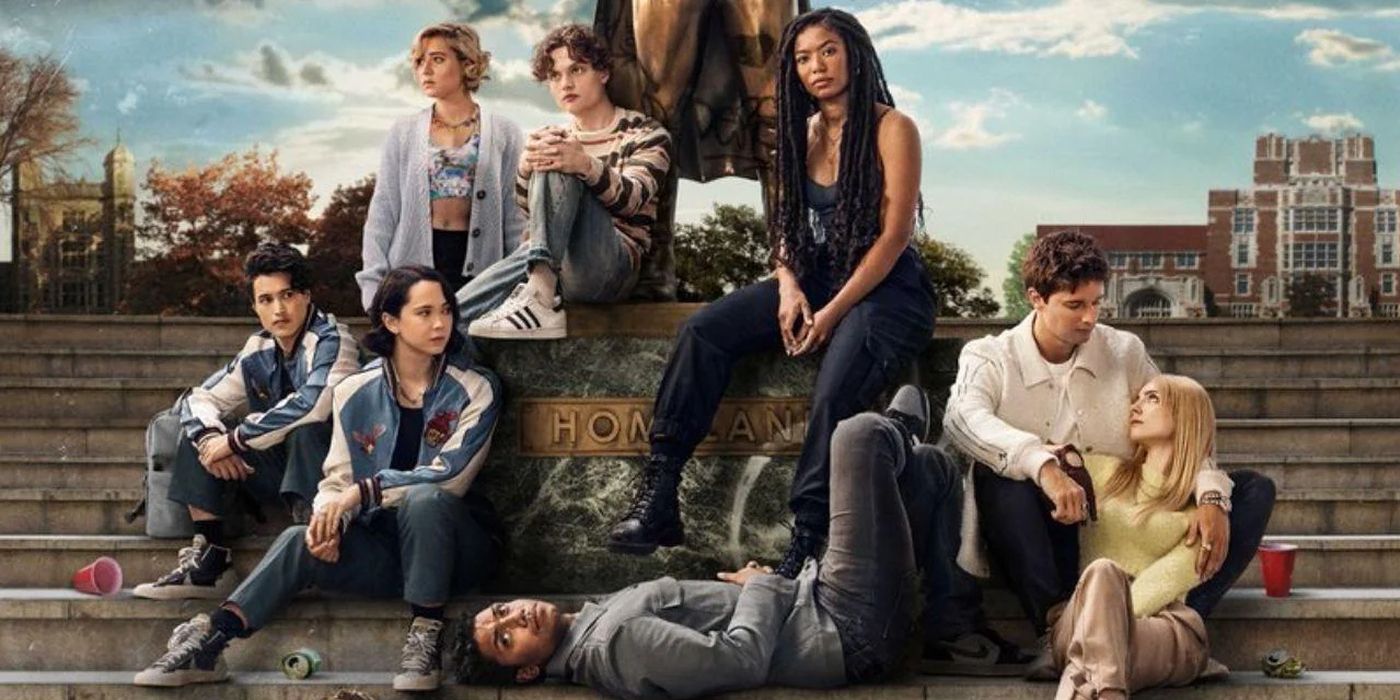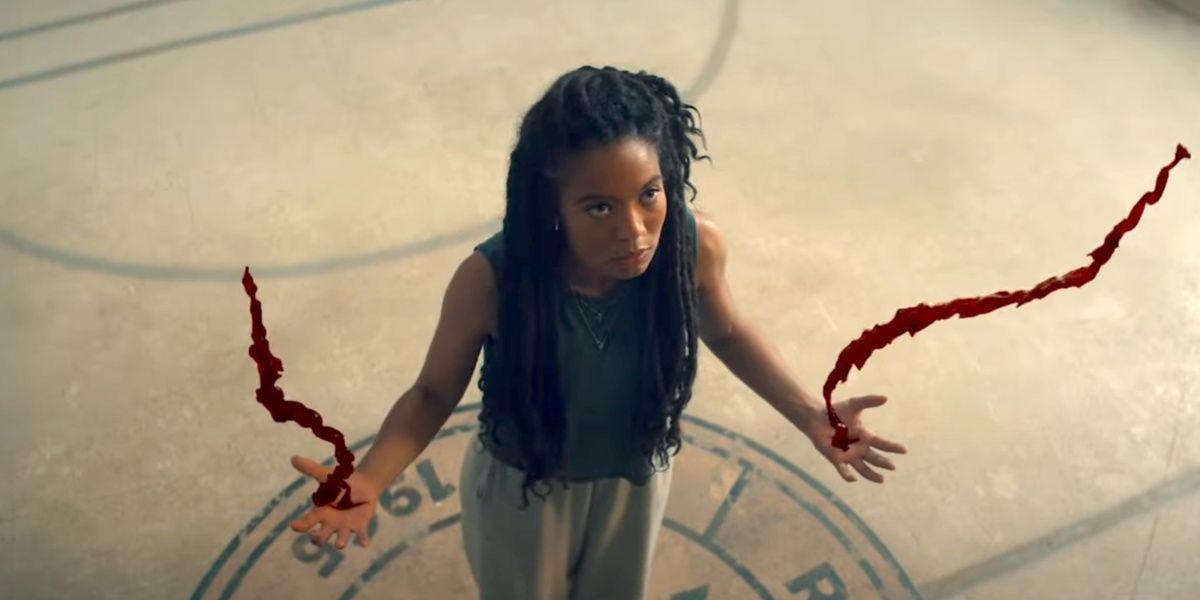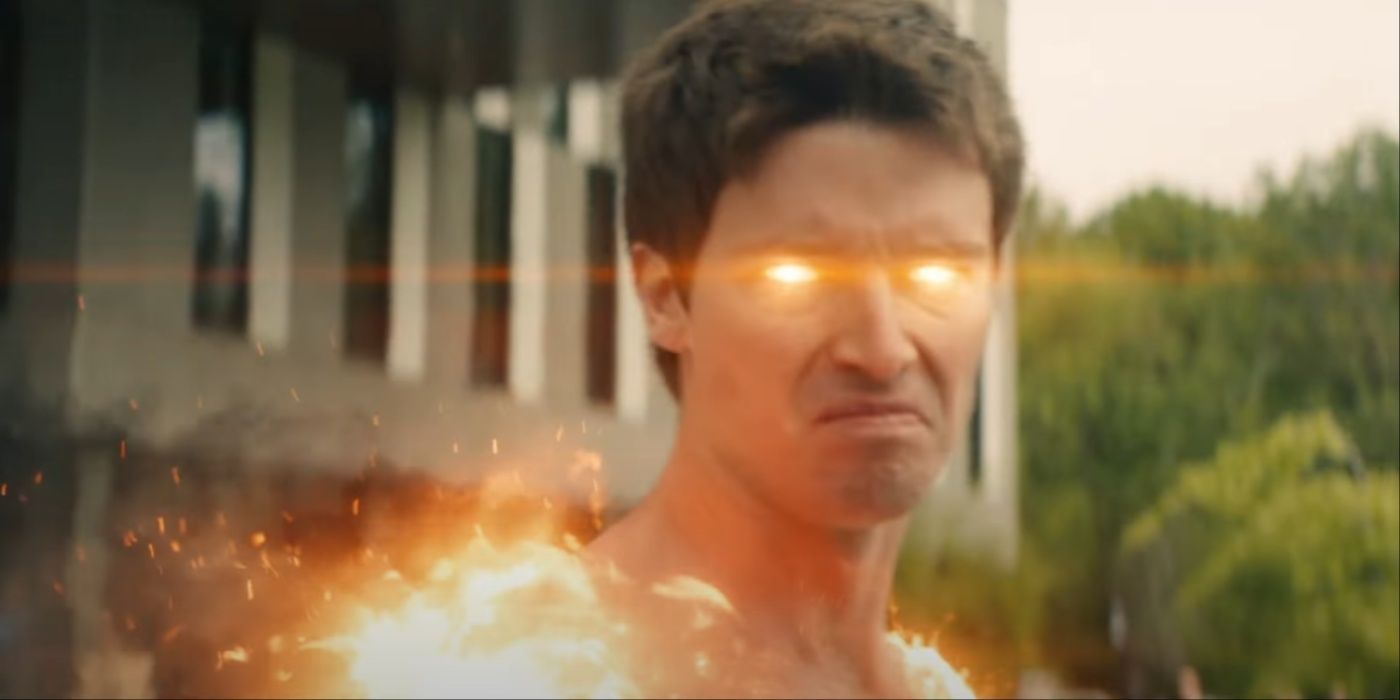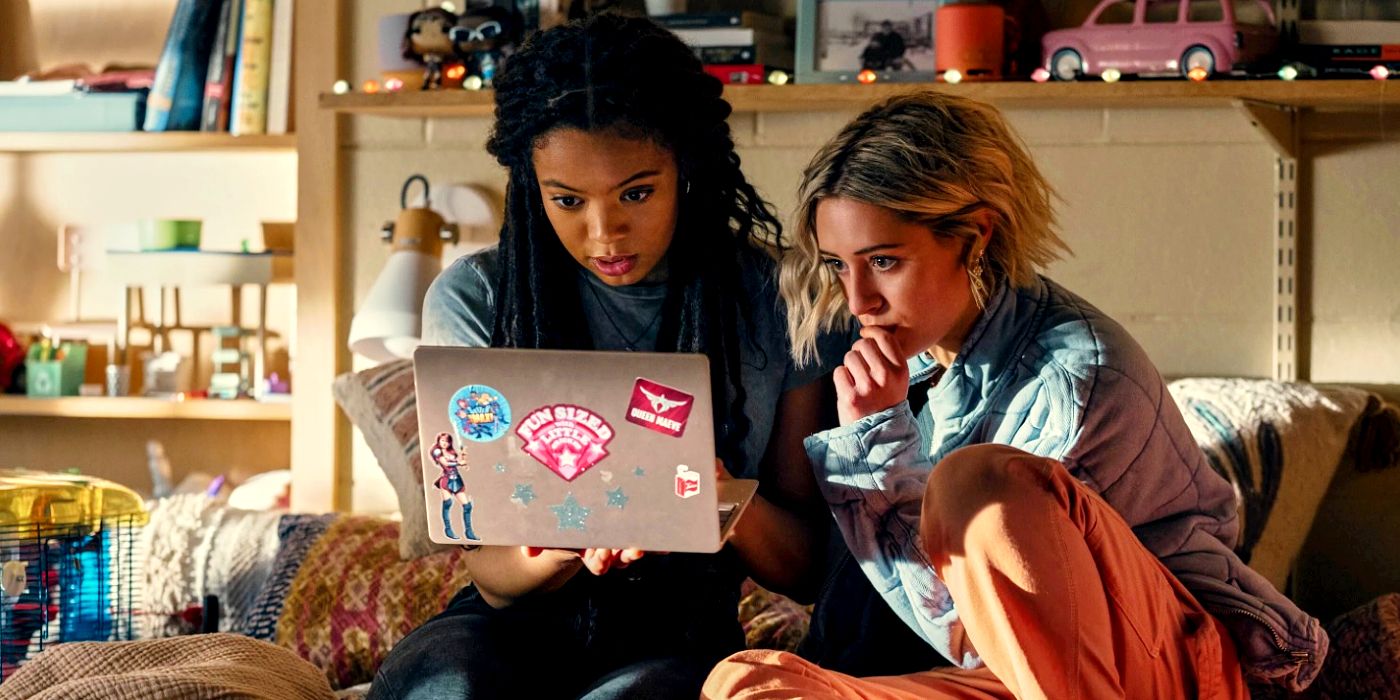The first live-action spinoff of The Boys, Gen V unfolds at Godolkin University School of Crimefighting. The institution trains college-aged supes to hone their fantastical abilities in order to launch their superhero careers and hopefully join The Seven. It's a cutthroat system where students are ranked on social media.
Gen V centers on Marie, an 18-year-old who can manipulate blood and weaponize her own. Ambitious and driven, she aspires to become the first Black woman in The Seven. But after a night out with Luke, aka Golden Boy, Andre, Cate, and Jordan Li, Marie finds herself in over her head. Gen V showrunner Michele Fazekas and creator/executive producer Eric Kripke recently spoke to CBR about young supes in training, season-long mysteries, and graphic content.
CBR: If The Boys provided a satirical look at superheroes infused with social commentary. What kind of stories did you want to tell with Gen V?
Michele Fazekas: What I love about this age is it is when you are away from your parents and trying to figure out, ''Who am I when I am not being told what to do by my parents?'' It's really figuring out what your values are. It's why there are so many college movies and coming-of-age things. It's that very rich time of your life. When you add a layer of superpowers and an underlying mystery. It's another way to tell this story. How do you figure out what type of person you want to be?
The Godolkin University is certainly no Xavier's School for the Gifted. What does it take to be a superhero in this twisted world?
Fazekas: You have sort of hit on a theme that we talked about a lot. What does it mean to be a superhero? It depends on who you ask. If you are asking someone at Vought, it means, "Make a bunch of money, do what you are told, don't embarrass us, and don't embarrass yourself. Enjoy the fruits of your labor, but definitely fall in line." Within the show, what our characters begin to learn is what it really means to be a superhero is to do something that sometimes isn't popular, is going to get you in trouble, and is going to get you expelled. They have to make that choice. They are always faced with that conundrum of, "Do I want to do well at this school and be successful and be what I am supposed to be, or do I want to do what I inherently know what is the right thing to do?" What we figured out early on is the heroes in our show would be the villains in The Boys. The heroes in our show haven't been corrupted yet. Are they going to be corrupted? Maybe. Or, can they fight against that?
Kripke: I think there is something fascinating and troubling about influencer culture. So many of their biggest aspirations are to sell out. That's the goal. "I want to be fucking ground beef to this machine. That's what I want." And there's a value to that. So much of the show is pointing out the cynical emptiness of that versus being a moral person might put you wildly out of step in the world you are living in, but that's not necessarily a bad thing. It's a very good thing.
Golden Boy meets his demise in the premiere. How much does his suicide propel the narrative beyond the first three episodes?
Fazekas: It launches into the big central mystery of the first season. We talked a lot about L.A. Confidential in the writers' room. You have the Nite Owl Massacre, so it's this one big thing that happens, but you don't really know why. As you keep picking at it, you uncover this massive thing. That is the first step. ''Oh, something is really wrong here.''
In The Boys, viewers can point to Homelander and Vought as the primary antagonists. Who should they be on the lookout for in Gen V?
Kripke: Antony Starr is doing unbelievable work as Homelander. Not that I am biased or anything, but it's a crime the man isn't weighed down with Emmys already. I think there was a real conscious notion to not top that or recreate that here. If anything, maybe you'd wonder if Golden Boy is going to become that character. Then, you realize he is lovely and sensitive, and then he explodes. It's better to not create a one-to-one with this school but to have an entirely different dynamic. Anyone who has seen seven minutes of Gen V knows that Dean Shetty is up to no good. It's not a huge, crazy reveal. So much of what we try to do in both shows is ground it in psychology rather than create the right genre archetypes. This is about adults manipulating children in a late-stage capital society. Those people are the ones up to no good, but it's a system more than any other character.
What was your philosophy when it came to disturbing action and gory images?
Fazekas: The philosophy is, "Anything goes, so long as it is not violence or outrageousness for the sake of violence and outrageousness." It has to be rooted in the story, characters, and what we are trying to say. With Emma, especially, you never expected that moment at the end of the episode, when this sweet and bubbly girl, on purpose, murders someone to save this guy. It is a completely morally correct choice, but I love that image. It shows, "Oh, she is now diving into what she never thought she would do. Oh, you don't think you can be a hero?" She can actually be a hero. It's not what you think it is going to be. It is going to be you inside someone's ear, covered in blood. But it's the bravest thing you have seen on the show so far.
Gen V is now streaming on Prime Video.




